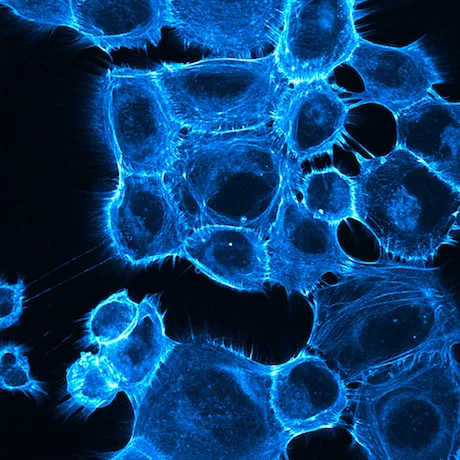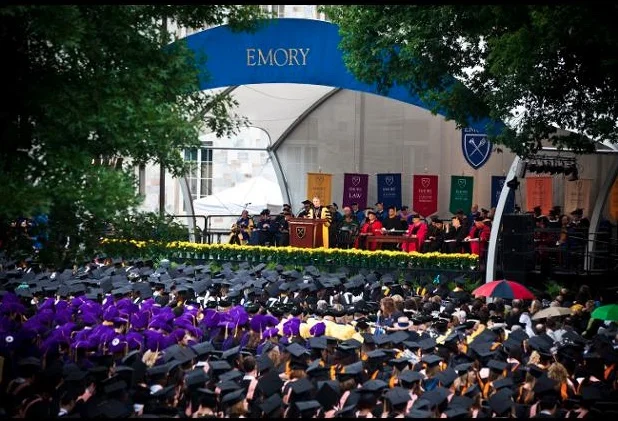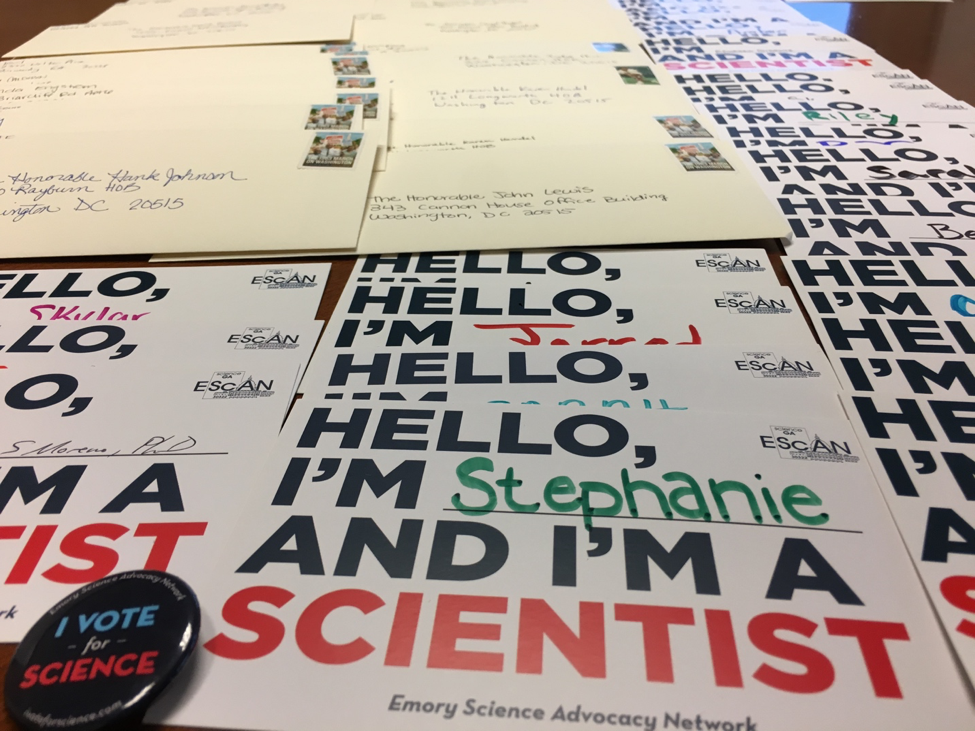By Bijean Ford, Immunology and Molecular Pathogenesis ‘14
Edited by Amielle Moreno, Neuroscience, ‘12
Each Spring the GDBBS Alumni Newsletter highlights the achievements of some of our outstanding graduate students from the concurrent academic year. The GDBBS is composed of a plethora of talent from all walks of life, and students contribute significantly to the scientific research community. That being said, we have the unique opportunity to choose from a pool of candidates that serve as prime examples of the outstanding work being conducting on our campus.
In this issue we were able to catch up with five GDBBS students who exuded excellence in their graduate school experience, and showcase the diversity of talent within our programs. These students offer a perspective of their journey through grad school.
Lauren Fleischer – MSP
Originally from Manhattan, Lauren has spent most of her life in New York state, subsequently attending Cornell University for her undergraduate degree. From a young age, Lauren was exposed to and expressed an interest in medicines. Her father worked in medicine and was supportive of her and her siblings pursuing a career in that field. Her fascination with medicine was further engrained by her family’s brush with cancer, as she had lost three grandparents to this disease. When cancer “hit home,” Lauren remarked, she was imbued with a drive to one day help find a cure.
During her time in a Cornell laboratory, she developed an interest in pharmacology and decided to immediately continue her education here at Emory in the Pharmacology PhD program. Currently, she is a 4th year in Dr. Trent Spencer’s laboratory, which piqued her interest during her recruitment interview. His lab is “translational, and very innovative.” Their work commonly leads to pre-IND (pre-investigation new drug) application, otherwise referred to as a new product candidate. Continuing to follow her childhood dream, her research focuses on pediatric leukemia.
As much as she is fascinated by the research she is doing, she doesn’t want to spend all her time cooped up in a lab. Outside of the lab life, Lauren makes time to play soccer intramurally and in an Atlanta league, in addition to rock climbing. She has a 2.5-year-old dog that keeps her on her toes, but also helps her unwind from work with couch and cuddle time. “It’s important to take time for yourself” says Lauren. “You need time to decompress and even though it’s cliché, work hard and then play hard; a happy grad student is a productive grad student!” This also ties into her decision to continue straight into her PhD program after her undergrad at Cornell. “I feel going into my PhD after graduation fit my situation because I had received some good research experience in undergrad and I was still in the mindset to take classes and continue schooling.” However, she points out, her decision creates a seesaw effect; although she is more driven on the academic side of things, she has less real-life experiences. “So really, it’s a trade off when it comes to deciding when to start graduate school.”
For the time being, Lauren sees herself staying in R&D after graduation. She really likes the bench and has an interest in pursuing an industry scientist position, quite possibly in the clinical research realm. She is concurrently participating in a certificate program for clinical and translational research. Apart from her membership with the American Society of Hematology and Society of Gene and Cell Therapy, she received 1st place at last summer’s Molecular and Systems Pharmacology Symposium. She has been awarded an F31 training grant along with the Aflac Cancer and Blood Disorders Center Graduate Student Fellowship Award to fund her research. In addition to her personal accolades, she has played an executive role in various pharmacology groups such as the Students in Pharmacology group, as well as the Executive Committee for the Molecular and Systems Pharmacology Program.
Madelyn Houser – IMP
What drives Madelyn to keep pushing through the most difficult times is her genuine inquisitiveness, and the fact that if she gives up, she’ll never get her answers. Madelyn is from Knoxville, Tennessee and attended the University of Tennessee in Knoxville for her undergraduate studies. From early in life she was interested in animals and science, but when defining her career path she was stuck between pre-med and research, so she explored both. Ultimately, she became annoyed by the existential lack of understanding on the clinical side of medicine. Due to her intrinsic desire to find answers to her questions, Madelyn pursued a career in science research. With the undergrad lab experience she acquired she felt sufficiently prepared to tackle her next goal, which was to obtain an advanced degree.
Currently, she is in Dr. Malu Tansey’s lab and she loves her research, which focuses on aspects of neurodegeneration associated with Parkinson’s disease. The positive lab environment, the great mentorship, and the diverse set of graduate students at different levels of their studies willing to bestow their knowledge, were all influential to her joining this lab. Madelyn has held membership with the American Society of Microbiology and the American Association of Immunology. Some of her personal accolades include being awarded an NSF Graduate Research Fellowship and a Laney Graduate School Fellowship. Most recently, she also was awarded 2nd place in a research poster contest at the Division Student Advisory Council (DSAC) Student Research Symposium. Also worthy of recognition, Madelyn has even extended her reach outside of Emory by assisting with administering therapeutic dance lessons for Parkinson’s disease patients.
When asked what advice she would give to current and future graduates, she mentions you should “find what motivates you and make that a focus of your everyday work as much as you can; don’t lose sight of that.” She also recommends you try to incorporate other interests into your grad school experience.
Looking ahead to what Madelyn wants to do after graduation, she plans on completing a post-doc. Beyond that is still up in the air, but at this point she ideally would like to continue working in a data-driven environment.
Dillon Patterson – GMB
Originally from Nashville, TN, Dillon later moved to Montgomery, Alabama and subsequently attended the University of S. Alabama for his undergraduate career. Dillon was always fascinated with science, but it was while taking a genetics class headed by an enthusiastic professor that his interest ascended to another level. Over the course of that class, Dillon sparked the initiative to ask his professor for mentorship and requested guidance in pinning down research opportunities for lab experience. As a result, he landed a research opportunity in his school’s cancer center, which developed into a fruitful experience.
After graduation, Dillon transitioned into a master’s program in genetics at the same university and completed an accelerated track. This provided him with the experience and skillset to step up to a PhD program here at Emory.
Dillon is now conducting research in Dr. Jeremy Boss’ lab, and his satisfaction from choosing that lab is tripartite. With bright eyes, he recants Dr. Boss’ amazing record of mentorship, garnished by research projects that pique his interest. In addition, the research is centered around epigenetics and immunology, which is relatable to his master’s experience. An extra perk of being a part of this lab is the computational biology exposure he receives from his colleagues.
Dillon’s project focuses on B cell differentiation and the changes that occur in a secreted plasma cell, at a genetic level. He analyzes these changes with each generation of cell divisions that occur and observes how the plasma cell reprograms itself over time. In addition to his membership with the American Association of Immunology, Dillon has racked up a few individual recognitions such as a Trainee Poster Award for Distinguished Abstract at the AAI Conference in 2017, 1st Place Poster Award at this year’s GDBBS DSAC Student Research Symposium, and an AAI Trainee Abstract Award in 2018, which also allowed him an oral and poster presentation slot at that conference.
In his free time, Dillon loves traversing the city with all it has to offer, especially attending Braves games. While proudly proclaiming his affinity to baseball, he was not shy to vocalize his displeasure with the new Braves stadium location. “I used to be able to run to a game with no problem,” he recalled, “But now, it’s so inconvenient to get there.” However, he hasn’t let that stop him from partaking in the sports festivities, and when he’s not scooting around town, or attending a game, Dillon enjoys spending time with his family.
After completing his PhD, Dillon would like to transition to a post-doc, and as of now would like to stay in immunology. He loves teaching and meeting with people to talk about science, and the academic research environment supplies plenty of that for him.
Finally, Dillon offers a tidbit of advice for a smoother road through grad school: Take time off to get refreshed because you want to make sure your time is as productive as possible. The effort you put into your work is well worth the results you get from it.
Brindar Sandhu – GMB
Brindar is originally from Michigan and has spent most of her life there, attending the University of Michigan. During her freshman year of college she pursued an undergraduate research opportunity, and the following summer participated in a chemical engineering summer program at the University of Kansas. There, she had an edifying experience that created a publication opportunity and further solidified her interest in a scientific track. The following summer, she continued doing research at the University of Michigan and engaged in a summer engineering program at UC Berkeley.
Brindar’s vast undergraduate experience opened up doors to a subsequent job opportunity at the NIH and then ultimately her spot here at Emory for her PhD. In 2016, she was accepted to the Comscicon @ Harvard for training in writing and the communication of scientific topics to the public. However, after a period of time, she was faced with the uncommon decision to switch labs and joined the McBride lab. She viewed this lab as a good fit, due to the lab being personally compatible with her and was translatable with her skills. Brindar’s research is centered around the genetics of C. difficile. More specifically, she studies the microbe’s resistance of beta lactams and strives to understand how a particular overexpressed operon helps it confer resistance. As of now, her post-graduate aspirations are leading toward a clinical or industrial environment.
For fun, Brindar loves to cook, sleep, attend festivals, and enjoy the outdoors. Her biggest motivation for getting through her PhD is to simply graduate and start embracing “real life.” She has served at various levels on numerous committees and councils, most notably as President of the Graduate Students in Genetics group and social co-chair of the Graduate Student Council. Most recently, this year she received 1st place for the Three Minute Thesis Abstract competition.
To conclude our interview, when asked what advice she would have for future and present grad students, Brindar remarks “choosing a lab is the most important decision.” When seeking out a lab home, consider checking off some of these boxes: Lab productivity for publications, happiness spending time there (do you like what you’re doing?), communication amongst lab members, and an accessible advisor/PI that is also easy to speak with.
Jason Conage-Pough – CB
Jason is one of the fortunate few who defended this Spring and can finally say “it is done” (congratulations!). He is originally from St. Petersburg, Florida and moved to obtain his undergraduate degree in chemical engineering from MIT. Although he did acquire some undergraduate research experience, it was not until after graduation and a couple years as a bio-processor at Genentech that he became more confident about where he wanted to take his career.
As an incoming prospect of the then brand new Cancer Biology Program, Jason was in a unique position where he and his program were symbiotically attempting to fit in to a new environment, become established, and then flourish. However, during the interview process he became acquainted with Dr. Larry Boise, who would be his future PI, and after admission into the program opted to rotate through his lab. Due to the supportive atmosphere of the lab and the translational and basic application of the science conducted there, Jason took full advantage of the opportunity to join the lab. His project focused on why cancer cells are resistant to apoptosis, otherwise known as cell death, and investigates how altering BCL2 protein interactions, which play a role in apoptosis, may have an impact on chemotherapy sensitivity of a cancer cell.
His motivation for getting through his PhD came from the personal support system he set up here on campus, but the lion’s share of his encouragement and backing came from his family. Obviously, the support helped as he has been awarded the Minority Graduate Student Abstract Achievement Award by the American Society of Hematology, the American Association for Cancer Research Minority Scholar in Cancer Research Award, the Minority Trainee Research Forum National Abstract Competition Award, and in 2015 was named Cancer Biology Student of the Year.
During his limited free time, Jason is a huge sports fan and enjoys attending sporting events hosted by the NFL, NBA or MLB. He also enjoys going out to eat, addressing his soul food cravings with no problem, but isn’t afraid to expand his food tastes due to the vast array of options here in Atlanta.
Now that he has obtained his PhD, Jason plans to continue his scientific journey as a post-doc to fulfill his long-term goal of becoming an independent researcher, either in academia or in industry. Ultimately, he wants to have societal impact and open up opportunities for less privileged individuals who want to enter the field.
In conclusion, our seasoned interviewee has some parting words of wisdom: “Take advantage of all the different perspectives offered here on campus by our program”; we see them in our emails all the time! Also he strongly suggests that students “seek advice from other PIs than your own, be it other faculty, mentors, and even students.” Lastly, in order to avoid unnecessary hardships, and circumvent annoying obstacles, he suggests “drawing off the experiences of others.” That can save a lot of precious time and headaches.






















I’d like to tell you my story about how I found myself on a project dedicated to helping families who have a child diagnosed with 3q29 deletion.